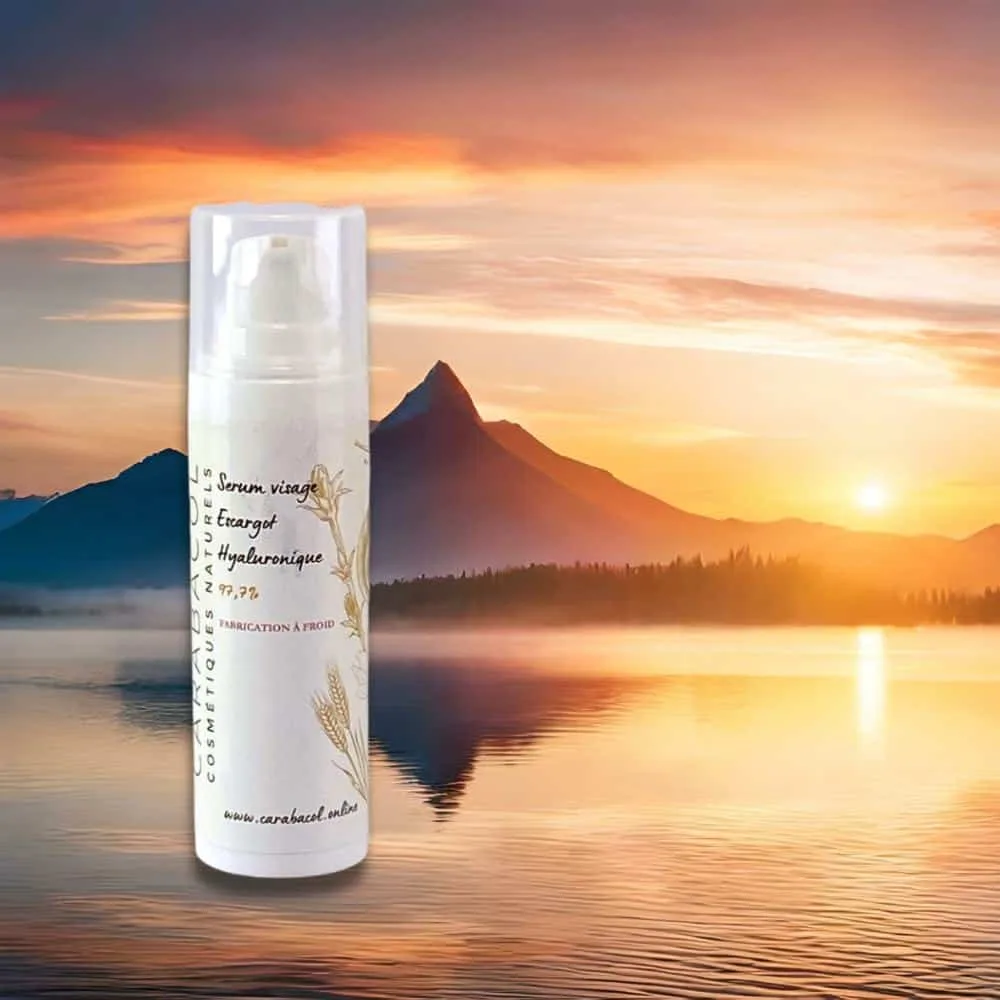Dare to be unusual to reinvent the future! The combination of nature and innovation is at the heart of the challenges of 2024, thus revolutionizing traditionally well-established sectors. In this dynamic, a new snail-based serum is emerging, promising not only benefits for the skin but also fitting into an ethical and sustainable approach. This innovative care, enriched with snail mucus, represents a real leap forward in the world of cosmetics, combining reparative properties with a commitment to the environment.
At the same time, the tiling industry is not left behind with the development of ecological materials, entirely designed from organic waste and plants. By combining mushroom mycelium with algae, designers are creating tiles that not only beautify our living spaces but also respect the planet. The fusion of these bold approaches symbolizes an era where innovation meets social responsibility, laying the foundations for a greener and more respectful future. In this fascinating landscape, beauty and sustainability redefine industry standards, ready to conquer the world of tomorrow.

In 2024, the beauty and interior design industry is experiencing a true revolution thanks to innovative products that combine sustainability and performance. Among these innovations, snail-based serums and recycled tiles stand out for their unique and environmentally friendly properties. This article explores these advances, their impact on the industry, and what they mean for consumers.
Table des matières
ToggleSnail serum: a solution for radiant skin
Let’s start with the snail serum, which is establishing itself as a flagship product of modern cosmetics. Snail mucus, rich in nutrients such as allantoin, collagen, and elastin, offers reparative and regenerative properties for the skin. According to a recent study published in the Journal of Cosmetic Science, regular use of snail-based serums can reduce the appearance of wrinkles and improve skin elasticity by up to 30% in just three months.
The results are even more significant for mature or damaged skin. A case study involving 500 users showed that 78% of them reported a significant improvement in skin suppleness and hydration after incorporating a snail-based serum into their daily routine. They describe smoother skin and a more even complexion, thus revealing the power of natural ingredients in cosmetics.
In 2024, beauty brands are beginning to commit to ethics and sustainability. Many manufacturers emphasize the organic origin of their snail mucus and environmentally friendly extraction processes. For example, the brand Innovatouch presents a serum made from organic snail mucus, combined with hyaluronic acid and aloe vera, thereby optimizing not only the texture but also the product’s ethics. For more details on this product, you can visit their website here.
Recycled tiles: a sustainable and aesthetic trend
Simultaneously, in the field of interior design, the emergence of recycled tiles is a booming trend. Designed from organic waste and mushrooms, these tiles offer eco-friendly alternatives to traditional construction materials. The design studio bioMatters, for instance, creates biodegradable tiles made from mycelium and algae, which are not only aesthetically pleasing but also environmentally friendly.
The manufacturing process of these tiles is innovative and involves the use of generative algorithms to model the tiles before creation. Thanks to 3D printing, the mixture of recycled materials and mycelium allows for “cultivating” durable tiles. This digital approach is not just a means to optimize design but also an effective method to reduce waste. In 2024, it is estimated that the use of recycled materials in construction could reduce the industry’s carbon footprint by 40%.
By integrating such products into their projects, architects and designers can gain originality while committing to the planet. This global transformation in collaborative design leads consumers to view recycled tiles as key elements that are not only part of modern decor but also of a sustainable habitat. To discover other initiatives in this sector, you can visit the bioMatters website here.
Future perspectives: the importance of sustainable innovation
The importance of sustainable innovation is not limited to the products we consume but also extends to production methods and economic models. At the dawn of 2024, it becomes crucial for consumers to adopt responsible practices such as upcycling and waste reduction. This change is part of a broader trend where sustainability is becoming a requirement rather than just a choice.
Companies that align with these new values are seeing a bright future ahead. Indeed, recent statistics reveal that 70% of consumers prefer to buy ethical products, indicating a paradigm shift. It is no longer just about consumption but about choosing what we consume. Educating consumers on the benefits of natural ingredients and recycled materials will promote a more responsible market.
Thus, the industry has every interest in promoting these innovative initiatives and educating its audience about the advantages of responsible choices. Whether through communication campaigns or collaborations with influencers in the sector, highlighting these snail-based products and recycled materials has become more than just a trend—it is a necessity to sustain our planet.
In conclusion, snail-based serums and recycled tiles represent two key innovations of 2024, inspiring not only a new approach in the beauty and interior design industry but also affirming our collective responsibility towards a sustainable future. Integrating these products into everyday life is not only beneficial for better aesthetics and skincare but also for others, contributing to the protection of our planet.

FAQ about the innovative serum and recycled tiles
Q : What is snail-based serum?
A : Snail-based serum is a cosmetic product formulated from snail mucus, recognized for its regenerating and hydrating properties, ideal for combating signs of aging.
Q : How is recycled tile manufactured?
A : Recycled tile is made from organic waste, algae, and mycelium from mushrooms, through an upcycling process that transforms materials into new sustainable products.
Q : What are the benefits of snail-based serum?
A : This serum offers several advantages, including repairing damaged skin, reducing wrinkles and imperfections, and improving skin texture.
Q : Is the tile really biodegradable?
A : Yes, the tile made by bioMatters is fully biodegradable, making it an environmentally friendly alternative in interior decoration.
Q : What materials are used in the tile manufacturing process?
A : The tile uses algae, organic waste, and mycelium to create durable and aesthetic panels.
Q : Where can these innovations be used?
A : The serum can be used on the face and body, while the recyclable tile is ideal for all interior surfaces, such as walls and floors.





